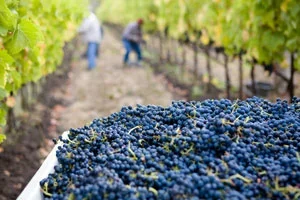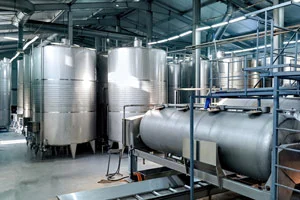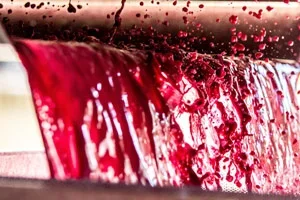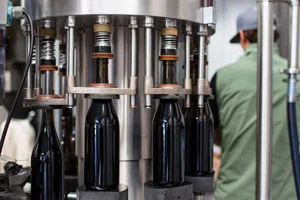Colloidal stability
The colloidal balance is perhaps one of the most difficult to obtain due to the complex composition of the wine matrix:
Protein stability of whites and rosés
It is obtained by the elimination of unstable proteins through their precipitation by electrostatic interactions with inorganic compounds such as bentonite.
Tartaric stability
It can be obtained through different processes:
- Physical by cold precipitation with or without addition of crystallization nuclei (Cremorvin).
- By addition of specific protective colloids that prevent the growth of microcrystals present as colloids in the wine: CMC (Estabicel), metatartaric acid (Metavimon).
Stability of the coloring matter
It will also have specific processes such as precipitation, bentonite entrainment or the use of “Verek” quality gum arabic, Gomasol PRO and Gomasol OPTIMA.
Natural protection of wines
The coloring matter consists mainly of grape phenolic compounds (anthocyanins and flavanols). Flavanols polymerize with each other via ethanal bridges (condensed tannins), which react with anthocyanins to create compounds of high molecular weights that can become unstable.
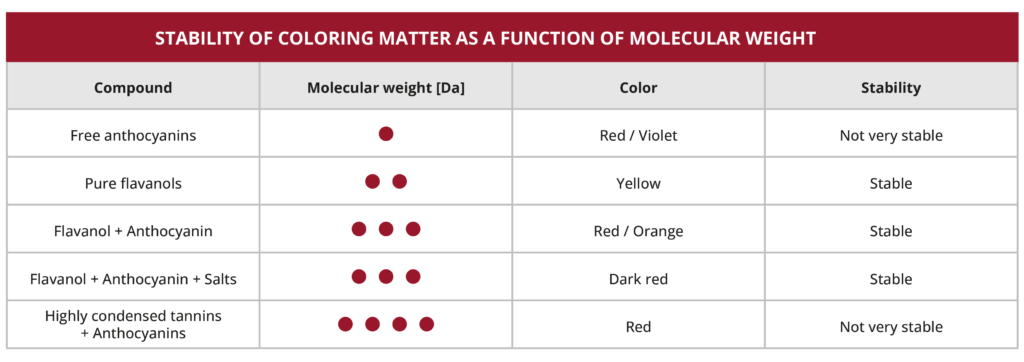
The flocculation of these unstable colloids can be inhibited by the addition of other colloids that act as protectants. The most effective protective colloid for the stabilization of the coloring matter is gum arabic, a natural polysaccharide extracted from African acacias.
GOMASOL Gum Arabic provide excellent stability against cloudiness and precipitation caused by coloring matter. They reinforce the action of metatartaric acid and reduce the risk of ferric and cupric bankruptcy.
